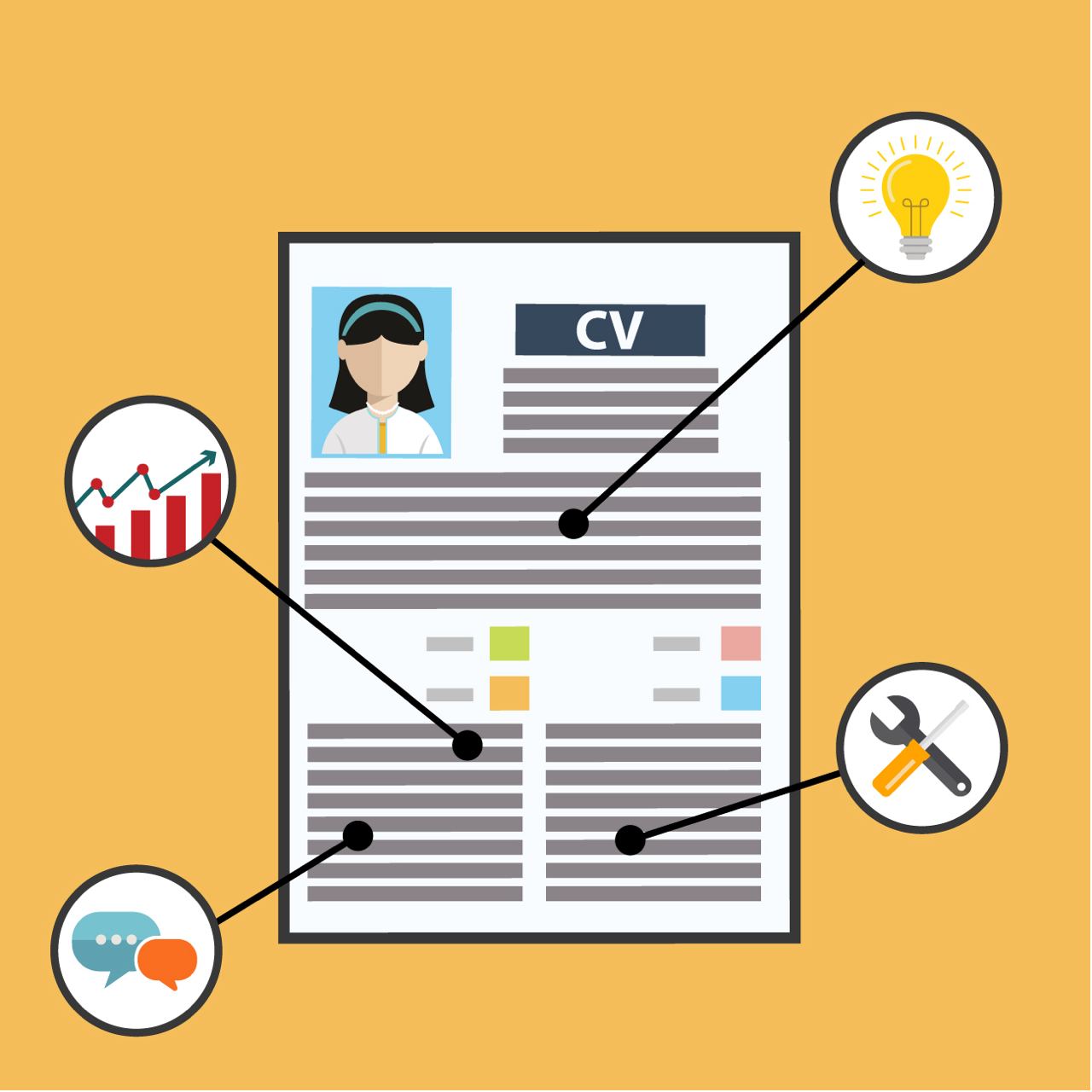When should you update your CV and why?
Jobsearch, Jobseekers / 18 July 2023
- Your CV is ready to send off straightaway when you want to apply for a new opportunity.
- You don’t have to rely on memory or spend time searching for details of courses you’ve completed, qualifications you’ve gained, or new skills you’ve developed. It’s already added to your CV.
- If you decide to tailor your CV to suit a job application, you can concentrate on that solely without wondering if your CV is a true reflection of who you are right now.
If you’re still not convinced, here are four occasions when it would be a good idea to update your CV.

When there have been big changes in your professional life
This might be a new job, a promotion, the completion of a big project, the development of fresh skills, or accomplishing new qualifications. By adding these updates as they happen, you can reshape other areas of your CV to match, for instance, rewriting sections of your CV to demonstrate your career progression towards a specific goal or job title.
Yearly career check-in
Whether there have been big changes in your professional life or not, it’s always wise to revisit your CV on a yearly basis as part of your annual career check-in.
An annual career check-in is a great way to assess whether you’re still on track to reach your career goals. Your career check-in should ideally answer these questions:
- Where are you now? What’s your current job title? What qualifications, work experience, and skills do you possess? What responsibilities and needs do you have outside work, such as childcare or the need to work from home? What are your likes, dislikes, and personality traits?
- Where do you want to go? This might be a promotion, a move to a different job title, changing working hours or your location, or retirement.
- Have you made progress since your last check-in? For instance, have you developed the required skills and experience to land that promotion? If you haven’t made any progress, what can you do to work towards your career goals?
- Is your career plan the same? For instance, has your dream job title changed? Have you attained that promotion and are now looking for the next step up? Do you want to move to a different field altogether?
Your CV should ideally reflect your current status and by keeping a record of past changes, it’ll be clear whether you’ve made progress towards your career goals.
For more information on developing your career path, read What does career advancement mean to you?
On a job hunt
This is the obvious situation where you would update your CV. This also provides you with an opportunity to save a range of CVs depending on the role you’re interested in. Ideally, your CV should always be tailored to suit the job you apply for, placing emphasis on the skills and experience listed in the job description. However, it’s always a good idea to keep a basic, up to date copy of your CV to use as a starting point for each adaptation.
When your employer asks for a current CV
There are a number of reasons why an employer might request an up to date CV beyond an initial job application. Your employer may ask for a current CV because they:
- like to maintain an up to date file for each employee
- have an internal vacancy and think you may be a good fit
- are interested in developing your skills through training
- want to know where there are gaps in your skills and experience
- are interested in your career development
Whatever the reason, being able to respond quickly is always to your advantage.
3 tips to follow when updating your CV
Whenever you update your CV and for whatever reason, it’s always useful to follow these three tips:
- Focus on the most relevant information. Tailor your CV to highlight the skills, experiences, and achievements that are most applicable to the job that you’re applying for. That might even be the job you currently hold if your employer has asked for an updated CV.
- Stay consistent both online and off. Make sure that the information on your CV aligns with your online professional profiles, such as LinkedIn. If you’ve registered your CV on a job board, make sure you change that too. Consistency across platforms reinforces your credibility and professionalism.
- Ask for feedback. Share your updated CV with trusted colleagues, mentors, or professionals in your field. Share it with friends and family too if they understand the field you work in. Their input and suggestions may prove helpful in refining your CV.
Wrapping it up
Updating your CV on a regular basis is always a smart move. Not only does it save you time and effort when you’re ready to apply for a new opportunity, but it also ensures that you have an accurate and up to date reflection of your professional achievements, experience, and qualifications.



